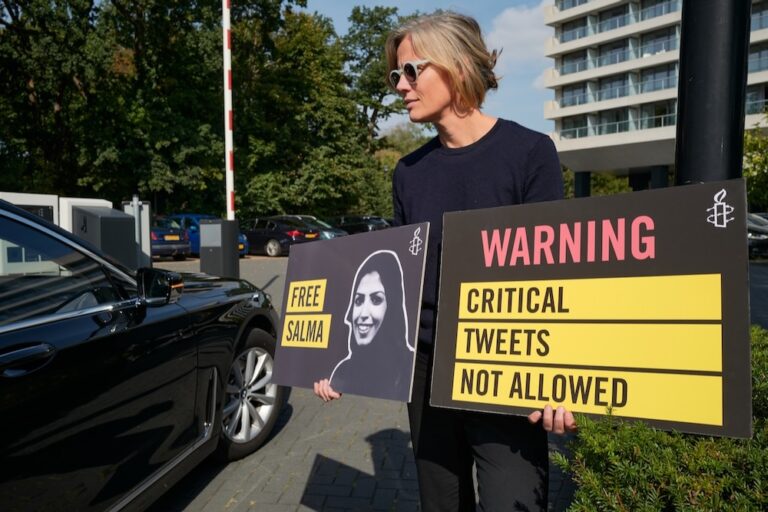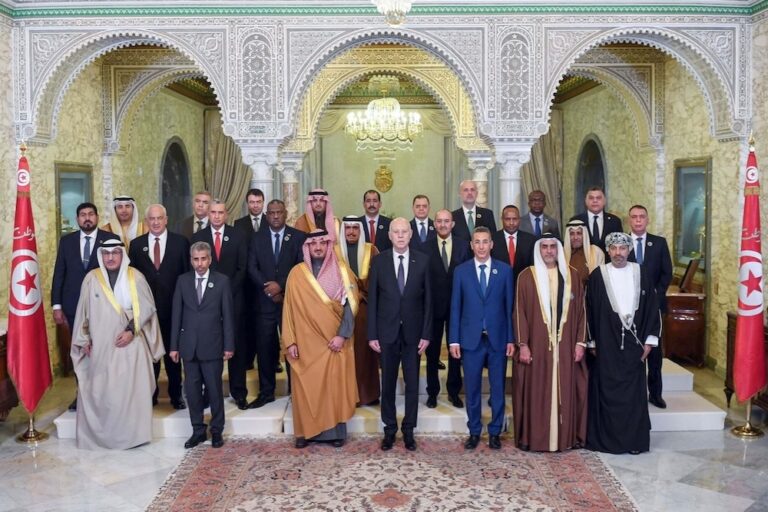(WAN/IFEX) – The following is an 11 December 2006 WAN press release: Beirut, Lebanon, 11 December 2006 Beirut Forum Examines Widespread Press Freedom Abuses in Arab World Editors, publishers and journalists from across the Arab world testified about numerous and widespread press freedom abuses at a “Media in Danger – Press Under Siege” conference in […]
(WAN/IFEX) – The following is an 11 December 2006 WAN press release:
Beirut, Lebanon, 11 December 2006
Beirut Forum Examines Widespread Press Freedom Abuses in Arab World
Editors, publishers and journalists from across the Arab world testified about numerous and widespread press freedom abuses at a “Media in Danger – Press Under Siege” conference in Beirut, Lebanon, organised by the World Association of Newspapers and the An-Nahar newspaper.
They weren’t short of solutions, either, although implementing them would be a daunting task.
“I am not exaggerating when I say the Arab press is witnessing one of the worst periods of its life,” said Salaheddine El Hafez, Vice Editor-in-chief of Egypt’s Al Ahram newspaper and Secretary General of the Arab Journalists Association. “The margins of freedom for the Arab press are severely limited and we have evidence of that in our daily lives.”
The two-day conference, which ended Monday, focused on supporting the development of independent, professional media in the Middle East.
Speakers testified about the widespread and varied obstacles that inhibit the development of the Arab press – political repression, draconian legislation, censorship and self-censorship, illiteracy and sectarianism, poor training, lack of resources and more.
“Arab rulers, regardless of their differences, agree on one thing – all of them consider the Arab press to be their sworn enemy,” said Jamal Amer, Editor-in-chief of Al Wasat in Yemen.
And the problems don’t just stem from Arab leaders. “I still self-censor myself, not because of fear that the state will punish me, but for fear of the reaction on the street,” said Ahmed Benchemsi, Publisher and Managing Editor of Tel Quel in Morocco. “I can defy the state. But defying the people – that’s quite tougher; when you have thousands of people in the street and they can attack your newspaper.”
The conference focused on four main areas: physical danger to journalists; repressive laws and regulations; censorship and self-censorship; and achieving economic independence and financial viability. Speakers came from Algeria, Bahrain, Egypt, Iraq, Jordan, Lebanon, Morocco, Palestine, Tunisia, United Arab Emirates, and Yemen. The programme can be found at http://www.wan-press.org/beirut2006
A report on the conference will be available soon and can be obtained from Kajsa Törnroth, Co-Director of Press Freedom and Development for WAN, at ktörnroth@wan.asso.fr
The press freedom problems vary from country to country but are serious everywhere. In Egypt, for example, which has numerous and often contradictory press laws, “everything we do can lead to prison,” said Ibrahim Issa, Editor-in-chief of Al-Dustour.
In Iraq, where 44 media workers have been assassinated in 2006 alone, the possibility of death is a constant concern. “I can tell you that a journalist who works in the main media is always a target,” said Alia Talib, head of Iraqis for Public Broadcasting, a monitoring group.
In Palestine, freedom of movement is limited and Israeli authorities often refuse to recognise a Palestinian’s right to work as a journalist, said Abdelrahim Abdallah, Journalism Unit Director of the Media Institute at Birzeit University.
And even in countries with a relatively free press, such as Morocco, there are taboo subjects, or “red lines” which journalists cross at their peril.
“The problem is, nobody knows where the line is,” said David Ignatius, Associate Editor and Columnist for the Washington Post, who chaired the session on censorship. “Journalists tend to push the boundaries, and they don’t know that they’ve passed it until they’re arrested.”
Though there was little cause for optimism, there were plenty of suggested solutions. These included:
– The establishment of “standards of free expression,” which include freedom of speech, freedom of access, transparency, honest reporting and objectivity. “In the west, these might be considered self-evident, but in our societies we have to remind people over and over again about the importance of these things in the face of oppressive regimes,” said Mr El Hafez.
– Aggressive prosecution of those who target and murder journalists and an end to a culture of impunity.
– The proliferation of financially viable independent newspapers where journalists can work without favour.
– Better training, salaries and benefits for journalists, and support for their families if they are attacked or killed.
– Respect for rule of law and the abolition of repressive media laws.
“There is very little hope of practicing journalism without danger as long as we have laws that limit freedom of speech,” said Mr Amer. “We must change the laws and promote the free press. We must work with international organizations that promote freedom. We must call on the United Nations to play a role in implementing Article 19 of the Declaration of Human Rights. We must consider that attacking journalists is an international concern, no matter where it occurs. We have to let everyone know what is going on.”
In parallel with the conference, WAN organised a training seminar for Iraqi journalists, hosted a meeting of press freedom organisations that are monitoring the freedom of expression situation in Tunisia, and continued work on its Arab Press Development Project, which encourages the exchange between newspapers throughout the Arab region and supports them in implementing successful commercial and editorial strategies. For more on WAN initiatives in the region, go to http://www.wan-press.org/article12549.html
The Paris-based WAN, the global organisation for the newspaper industry, defends and promotes press freedom world-wide. It represents 18,000 newspapers; its membership includes 76 national newspaper associations, newspaper companies and individual newspaper executives in 102 countries, 12 news agencies and 10 regional and world-wide press groups.


